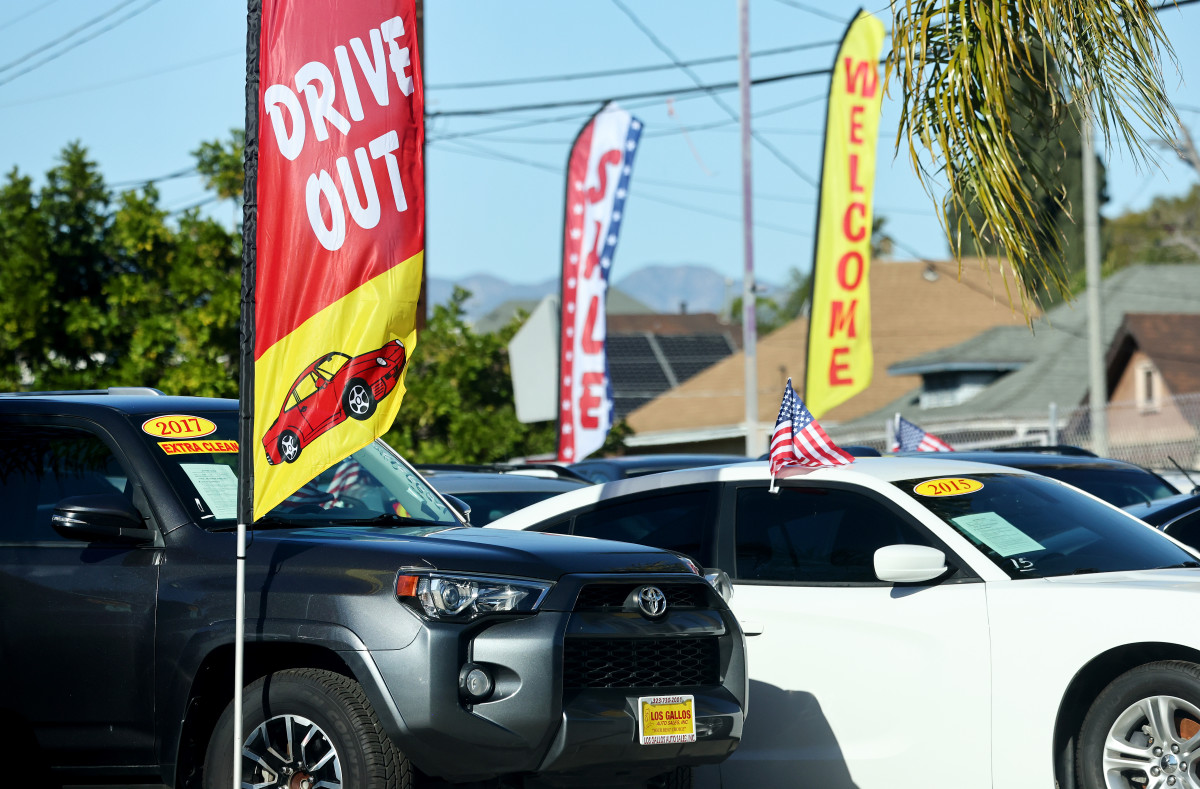
TheStreet aims to feature only the best products and services. If you buy something via one of our links, we may earn a commission.
Regardless of whether you’re doing it yourself or working with a professional, the steps for buying car insurance are the same:
- Determine your coverage needs. How many vehicles do you own? Who will be driving them? How far will you be commuting? What is your budget? These questions will help you decide how much car insurance you need.
- Shop around. This means getting quotes from at least three different companies.
- Compare policies carefully. Ensure you’re getting quotes for the same amount and type of coverage you currently have. Otherwise, you won’t be able to make an accurate comparison.
- Inquire about discounts. You can save up to 25% on your premium if you have a clean driving record, opt to bundle your auto and home insurance, insure multiple vehicles on the same policy, serve in the military, and more.
- Select and purchase your policy. If you have an existing car insurance policy, ensure your new coverage is in effect before canceling your old coverage.
- Notify your lender. If you have a loan or a lease, you must notify the financing institution that you have updated your car insurance coverage.
Buying car insurance isn’t just a good idea – it’s the law nearly everywhere.
“Having car insurance is essential because it helps cover the costs of damages or injuries caused by accidents, protecting you from significant financial loss and legal liabilities,” says Dennis Shirshikov, a professor of economics at City University of New York/Queens College.
Whether you’re looking for a policy that only meets your state’s minimum-coverage laws or want bumper-to-bumper coverage, you can buy car insurance online, over the phone, or in person. It comes down to how much work you want to do and whether or not you want someone to guide you through the process.

Shutterstock
Ways to buy car insurance
There are three ways you can buy a car insurance policy:
- Do it online. Most insurance company websites allow you to begin the application process online, and many also allow you to buy a car insurance policy.
- Pick up the phone. In most cases, you can apply for and purchase coverage by calling an insurer’s customer service number. While most carriers offer 24/7 claim service, policy sales are often limited to business hours.
- Find a local agent or broker. Some insurers like State Farm require customers to work with a nearby agent to complete the purchase process. If you aren’t sure which insurer to work with, an independent agent who represents multiple carriers can be helpful.
If you purchase coverage directly from an insurer, you must work with a representative online or over the phone. Some companies also employ so-called “captive” agents who represent that insurer exclusively and can offer policyholders local service.
“Buying directly from an insurer like State Farm means you will deal with them for everything,” says former licensed insurance agent R.J. Weiss, a certified financial planner and editor of The Ways to Wealth, a personal finance website.
DON'T MISS: Important car insurance facts you need to know
- Cheapest car insurance companies in 2024
- Can you negotiate car insurance?
- How can I get cheap car insurance with bad credit?
A captive agent can only give you quotes and sell you a policy from the carrier they represent.
If you don’t want to research car insurers or know which carrier best meets your needs, you may want to consider working with an independent insurance agent or broker.
Related: Car insurance: See if one inexpensive option is right for you
“Going through an agent or broker can provide quotes from different insurers and offer personalized advice. Many agents will provide customer service throughout the policy, too,” Weiss says.
What are some common mistakes when buying car insurance?
Making mistakes when purchasing car insurance is easy, especially if this is your first time getting a policy. Try to avoid these common errors:
- Underinsuring. Don’t settle for your state’s minimum insurance requirement. Experts recommend liability insurance for injuries or property damage you cause in an at-fault accident with coverage levels of 50/100/50. That breaks down to $50,000 in bodily injury protection per person and $100,000 per accident, plus $50,000 in property damage liability. You may also want collision insurance, which will cover your vehicle if it’s damaged or totaled in an accident, and comprehensive insurance for damage from weather events, theft, or hitting an animal.
- Ignoring policy exclusions. Be sure to understand what’s included and not included in your policy. “For example, many insurance companies exclude commercial or business use of your vehicle,” Weiss says.
- Choosing a deductible you can’t afford. A deductible is the money you must pay before your collision or comprehensive insurance kicks in to repair or replace your vehicle. Deductibles can range from as much as $2,000 or $500 or less; some policies waive the deductible entirely. When you apply for a policy, you choose the amount, and most insurers will let you adjust it later. The higher the deductible, the lower your premium. But make sure you can afford that big payout before agreeing to a bigger deductible.
Related: Veteran fund manager sees world of pain coming for stocks







